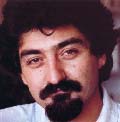
Question: In its literature, the Worker-communist Party of Iran has clearly spoken about the necessity of abolishing capital punishment. What is the WPI’s reasoning behind the necessity of abolishing capital punishment?
Mansoor Hekmat: Capital punishment is the state’s terminology for murder. Individuals murder each other, but states sentence individuals to ‘capital punishment.’ The demand to end capital punishment and prohibit murder stems from opposition to intentional, deliberate and planned murder of one by the other. That a state or ruling political force is responsible does not make the slightest difference to the fact that we are dealing with intentional murder. Capital punishment is the most deplorable and appalling form of intentional murder since a political authority, publicly, with prior notice, on behalf of society, with the utmost legitimacy and ruthlessness, decides to murder someone, and announces the date and time of the event.
Question: With the abolishment of capital punishment, how can grievances be filed against murderers?
Mansoor Hekmat: It is an interesting question. With the abolishment of capital punishment, right from the start, a leading murderer, the state, will immediately be stopped. Your question implies that capital punishment has been invented to file grievances against murderers or that lawmakers found it suitable for the crime of murder after lengthy deliberations. Capital punishment, however, has nothing to do with murder in society. It has its own history. It is the state’s rights and powers over citizens today as a continuation of the state’s rights and powers in the past. When Agha Mohammad Khan Ghajar blinds and kills residents of an entire town, he is not objecting to a specific crime. When a horse thief in America is hanged or a soldier who has escaped military service is executed, they are not registering a grievance in a judicial sense, but rather they are putting people in their places and forcing them to submit to rules and regulations. They are terrorising people. They are governing. In today’s world, capital punishment is not just a so-called punishment for murder, it is also a punishment for unauthorised sex, hoarding, believing in common ownership, forming opposition parties, mocking of god and prophets, homosexuality, etc. From the beginning of state rule, the killing of inhabitants has always been and is a pillar of forcing people into submission. The history of capital punishment is not found in judicial debates about crime and punishment, but rather in the history of class rule and the state. States kill their citizens today. This must be stopped.
You ask if there is no capital punishment, what we can do with murderers. The killing of murderers is a repetition of murder. This cannot be done. What else can be done depends on the judicial philosophy of society. In the current system, a murderer could be imprisoned. Perhaps in an ideal society, people could be protected from the repetition of murder, or the murderer could be made to understand its offensiveness, without even taking away his/her freedom. In an ideal society, it may even be possible to create conditions so that pre-meditated murder does not occur.
Question: How would the WPI treat the Pasdaran (Revolutionary Guards) and torturers who are captured and found guilty of murder?
Mansoor Hekmat: There are no capital punishment or life sentences in our system of laws. Clearly, these people should be imprisoned and worked on so that they can return to society and be forgiven.
Question: Without capital punishment, how will families of the murdered obtain justice?
Mansoor Hekmat: The idea that the family of the victim owns the victim’s blood and that justice is a debt owed by society is a backward and unacceptable concept. The victim’s family’s sadness and sorrow is undeniable. But if capital punishment is allowed to appease their sorrows, why is murder not excused for similar emotions? Can anyone who has suffered humiliation, been crushed, lost everything, become a drug addict, bankrupt or homeless commit murder to appease bitter emotions? Is the state a killing machine, which individuals refer to for retribution? Is justice a concept replacing retribution? The meaning of justice should be discussed later. The concept is not so objective and beyond the class system that some might think.
Question: Would not the abolition of capital punishment result in increased crime?
Mansoor Hekmat: No, the reverse. As I said before, the long list of state sponsored murders will immediately stop. The US government and its prosecutors are the busiest professional murderers in that country. The abolishment of capital punishment is like arresting 150 serial killers at once! Furthermore, a society that legally permits the killing of human beings can never prevent its repetition by the general public. The abolition of capital punishment and declaring the value of human life is the first step in the struggle against a culture of murder in society. Official statistics clearly show that in Holland, Scandinavia and Britain where capital punishment are prohibited, the murder rate (in ratio to the population) is far less than in the United States.
Question: In your opinion, what should be the objectives of punishing criminals?
Mansoor Hekmat: I am not sure if punishment is basically a good word for a humane judicial system. In my opinion, aside from prevention and removing the social, economic and cultural bases of crime, society must first, with minimal use of force and minimal deprivation of the offender’s normal life, protect itself from the repetition of an offence. Secondly, it must help these individuals transform. I think that retribution and punishments that make examples of persons must be banned. We must reach a point where society so distances itself from violence that it treats it like natural disasters, rushing in to help the victims, making efforts to avoid its repetition and minimise the damage, without sacrificing anyone by throwing them in the volcano or the sea.
Question: If the abolition of capital punishment is to value human life and the right to live, then how do we pursue the demand for the freedom of political prisoners who have killed innocent human beings during the course of their political actions? What should be done to a fighter who has planted a bomb on a bus or other place and consequently killed one or more persons? Must we demand their freedom?
Mansoor Hekmat: I do not call an individual who plants a bomb on buses and planes, a fighter. Unfortunately, for a specific period, this method became popular in some legitimate movements and was later elevated to an art of killing under the guise of politics by some reactionary movements. I do not have general formula to deal with them. It depends on the state they are fighting against, on the judicial standards of the given country and its legal legitimacy and on the conditions under which it occurs. In my opinion, the case of those who bomb non-military targets is not a political case. It is possible to provide secondary political reasons for the crime, but the case is not a political one. However, if those who have attacked non-military targets are to be arrested and tried, several Western presidents and prime ministers, hundreds of American and European bureaucrats, generals and commanders will be the first to be accused. I see no difference between Timothy McVeigh who committed such a massive crime in Oklahoma and those who bombed shelters, schools and houses, killing so many in Baghdad.
Question: Which authority must try these?
Mansoor Hekmat: A power that has legal legitimacy. According to their definition, despotic governments do not have such legitimacy. In my opinion, to try the general Schwartzkopfs and the Bin Ladens, acceptable courts could be found or created even in this bourgeois world.
Question: What is your definition of a political prisoner?
Mansoor Hekmat: In my opinion, there are two categories of political prisoners and prisoners of war, which are relevant to this discussion. A political prisoner is someone who is in prison for opposing a government. Accordingly political prisoners must be freed. There should not be any trial. Anyone who has carried out political activities against a government must not be arrested. Moreover, prisoners of war have not committed any crimes and must not be deprived of their civil rights, including freedom. This of course is not only a matter between states. In my opinion, members of guerrilla organisations who have declared war on states and have been captured must be entitled to the same rights as prisoners of war. Current laws must profoundly be changed in favour of these prisoners. Imprisoning an individual and depriving him/her of their normal life must be banned. But arrangements could be made to prevent the individual from re-joining his/her army until the end of the war or until it is ensured that s/he will not take part in the war again. Finally, we have another concept of war crimes. This concept must be seriously redefined and include all instances in which forces attack non-military and civilian structures. In recent years, we have witnessed the most widespread war crimes committed by western and local governments in different countries such as Iraq and Yugoslavia. There are many war criminals that roam freely among people as leaders, national heroes and patriots who must be tried.
Question: What are the reasons behind Islamic fundamentalists’ insistence and eagerness on annihilating and killing their opponents?
Mansoor Hekmat: I have not researched whether someone is first attracted to murdering and then becomes an Islamic fundamentalist or vice versa but I am sure the answer is somewhere in your question.
First Published: Khavaran, the quarterly of the Organisation in Defence of Political Prisoners in Iran, Fall 2000. It was reprinted in International Weekly No. 26, November 3, 2000.
Source: Worker-Communist Party of Iran (WPI Briefing)
Translators: Fariborz Pooya, Maryam Namazie
Transcription/Markup: Worker-Communist Party of Iran/Brian Basgen


Be the first to comment